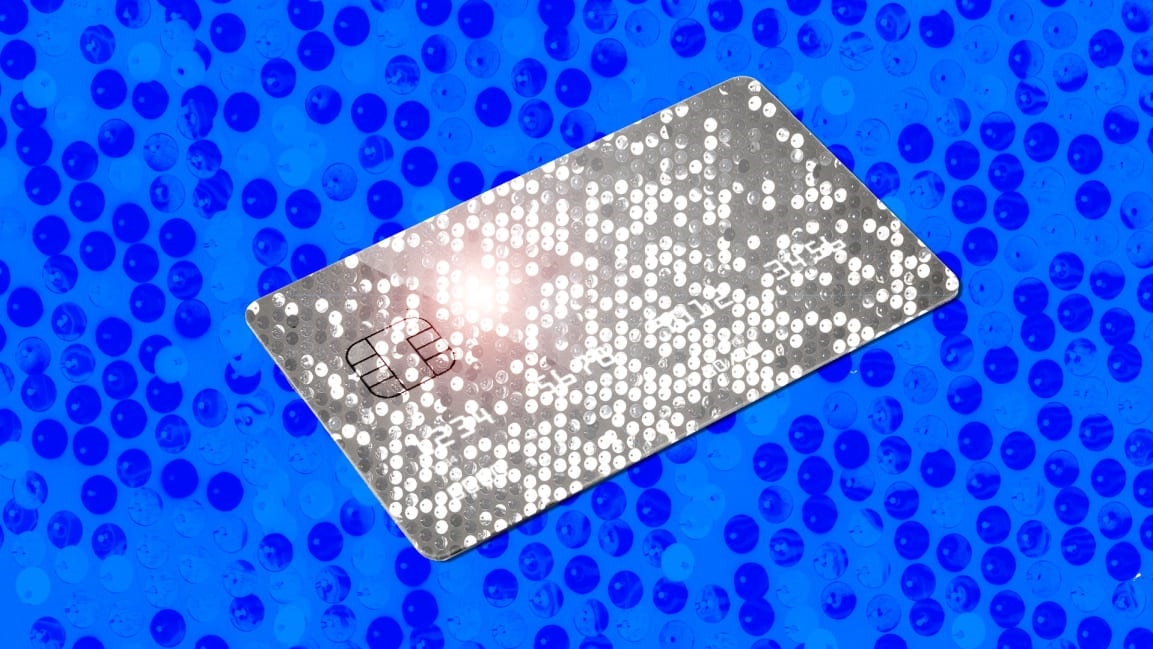The Pink Tax is real, but Sequin’s sparkly credit card for women won’t fix it
Hey Ladies! Guess what? Our dreams have come true! There’s now a new women’s only credit card on the market that doubles as a mirror! Can you imagine? We can now whip out the card to pay for our pumpkin spiced lattes, then use it to touch up our lipstick! And also, just to emphasize that the card is exclusively for women, it is called Sequin! Because, duh, women love sparkles.
Many women will not be able to get past the stereotypes that this new credit card promotes through its design and branding: Not all of us want to be reduced to this sparkly, compact-mirror carrying version of womanhood. But if they stick around long enough to consider the premise of the card, they might find it equally problematic.
The Sequin card is the brainchild of Vrinda Gupta, who spent many years working at Visa. In her time there, she discovered that women have more anxiety about signing up for credit cards than their male counterparts, which makes them more likely to sign up for debit cards instead. Gupta references a Forbes article that makes this point, along with a 2017 NerdWallet survey that says that all millennials, regardless of gender, are more anxious about credit cards than older generations.
I couldn’t find much more research that women are more anxious about credit cards. When we reached out to Gupta, she said she had seen “a few articles . . . that pointed to women feeling great anxiety around building and using credit.” However, she could not identify a precise survey or data point that indicated that women were less likely than men to sign up for a credit card. She said she would look into it more and get back to me.
Women do tend to have lower credit scores, as Gupta points out in a Medium post. This is likely due to several factors, not least of which being the gender wage gap. And it’s true that credit cards first entered the market in the 1940s and 1950s, at a time when most women didn’t work outside the home, so they were designed—by default—for men. As recently as the 1970s, credit card companies refused to issue women cards without their husband’s signature, and it wasn’t until the Equal Credit Opportunity Act of 1974 that it became illegal to refuse a credit card to a woman because of her gender.
Gupta’s goal with Sequin is to create a company that makes credit cards feel more welcoming to women and to offer rewards that are more relevant to women’s lifestyles. To this end, Sequin does not offer traditional rewards, like airline miles or cashback on grocery and gas purchases. Instead, Sequin’s rewards revolve around the Pink Tax, the documented pricing discrimination that women face because of their gender. It’s called this because many brands sometimes create pink versions of their products. For instance, Bic famously charged $2.81 for a pink “For Her” pen versus $0.84 for other colors, to target female consumers and sell them at a higher price.
In her Medium post, Gupta explains: “Sequin pays back the Pink Tax with rewards on product categories like beauty, personal care, retail, feminine products, dry cleaning, and on every dollar you spend.” Right now, Sequin is not available to the public, although women can already sign up for the wait list. There are no comprehensive details about the rewards scheme, interest rate, or how Sequin will reward women for “every dollar” they spend. But based on the available information, this approach to tackling the Pink Tax is problematic.
The real problem with the Pink Tax is that companies treat men and women differently: Brands create separate products for women and assume they are gullible enough to pay more for them. Sequin doesn’t address this issue at its root but rather compensates for pricing differences. This helps support the status quo, rather than pushing companies to recognize what they are doing and level the playing field. To use the Bic example, it is far more compelling for women to boycott pink pens than for Sequin to compensate women for the increased price they would pay.
And if it’s true that women are more anxious about getting credit cards, then the solution isn’t necessarily for a startup to create a shiny, women’s only card. It’s for the major credit card companies to make their cards and reward programs equally welcoming to men and women. And if the data does indeed show that women are more likely to be denied credit, or that women are less likely to sign up in the first place, or that women aren’t taking advantage of rewards at the same rate as men, then this is something consumers should call them out on.
(28)



